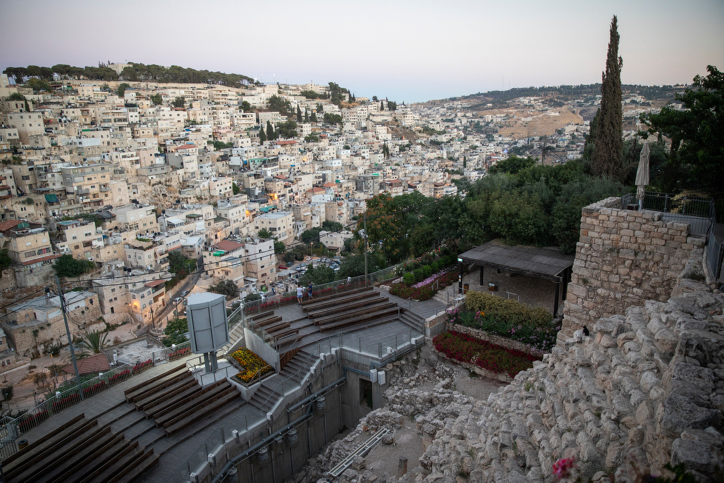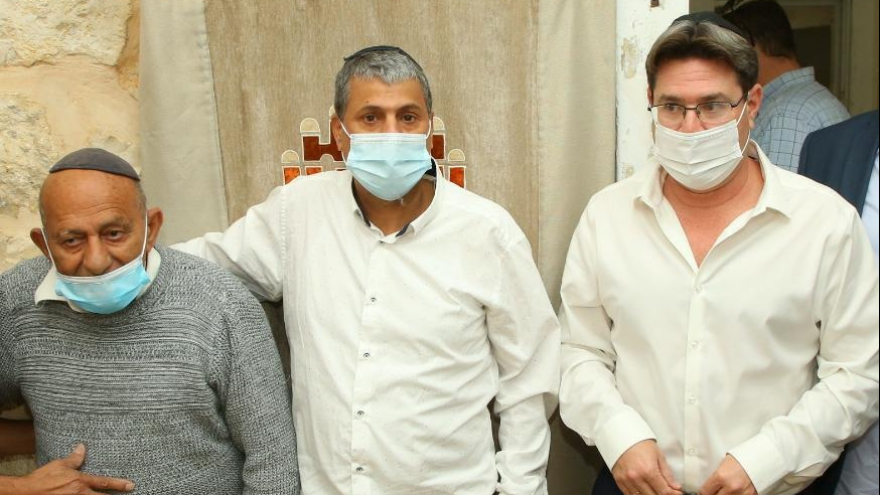The first-ever memorial day for Shlomo Madmoni was held on Monday in the village of Shiloah (Silwan) in eastern Jerusalem, also known as the Yemenite village. The event, initiated by the Shiloah public council, was attended by Israel’s Regional Cooperation Minister Ofir Akunis.
Madmoni was murdered in 1939 on his way to save a Torah scroll and other synagogue property that had been badly damaged during Arab riots led by Grand Mufti of Jerusalem Haj Amin al-Husseini.
During the memorial service, a marble memorial plaque was placed in the old Yemenite synagogue. And for the first time in 82 years since the murder, the Mourner’s Kaddish was recited there for him—none other than by Shlomo Madmoni’s son, 86-year-old Rahamim Madmoni.
“It is very moving to be here in the place where my father, peace be upon him, went to save a Torah scroll,” said Rahamim. “I close the circle with my father, and I am sure that he is very proud at this moment. We continue the heritage of our ancestors, here and all over Israel.”

Akunis also toured the Ohel Shlomo Synagogue in Shiloah to learn the story of the village’s history and renewed Jewish settlement there.
“This is a historic day in a historic place. We are closing a circle that began with the Jewish settlement here in the village of Shiloah in the 19th century, with the arrival of the first immigrants from Yemen. As I used to say in holy places like this, we are back to settle this place forever and have no intention to leave it again,” he said.
Village mukhtar Daoud Siam watched from his home as the minister entered the ancient synagogue along with Rahamim Madmoni and Gadi Bashari, head of the Shiloah public council.
“My late grandfather, Abed Siam, may Allah have mercy upon him, had a coffee shop in the village,” he recalled. “Yemenites, Jews and Arabs would all sit there together. When there were attacks on the village, we protected with our own bodies the neighbors that we loved.
“I wish we would return to these days when everyone lived together in peace and serenity, and there would be again good relations and love between the Jewish and Arab neighbors.”



























